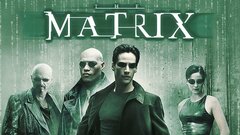One half of the filmmaking duo known as The Wachowskis, Lana Wachowski and her younger sister Lilly were the creative minds behind the "Matrix" trilogy, one of the most imaginative and influential film series in Hollywood history. Conceived from a childhood steeped in fantasy novels and comic books, the "Matrix" films combined martial arts action with literary and cinematic references and a wide array of world religious and philosophical tenets. The result was a massively popular trio of films that largely redefined the action genre and CGI effects for a new generation of moviegoers.
Wachowski continued to release big-screen epics in its wake, scripting the comic adaptation "V for Vendetta" (2005) and directing "Speed Racer" (2008), ambitious epic fantasy "Cloud Atlas" (2012), science fiction action-adventure "Jupiter Ascending" (2015) and futuristic TV thriller "Sense8" (Netflix 2015-17), maintaining her status as one of Hollywood's most imaginative and inventive writer-directors.
Born June 21, 1965, Lana Wachowski was raised by by Ron Wachowski, a businessman, and his wife, Lynne, a nurse and painter. Lana attended Bard College, but dropped out prior to graduation and returned to Chicago, where she ran a carpentry business while writing for Marvel Comics' Razorline imprint, primarily on a series created by horror writer-director Clive Barker called Ectokid. The series concerned a teenager whose father is a ghost who gives him the ability to see into another dimension that co-existed with present-day Earth, a conceit that would be echoed later in the "Matrix" trilogy.
The Lana decided to break into show business after reading How I Made a Hundred Movies in Hollywood and Never Lost a Dime, the autobiography of independent film legend Roger Corman. She cowrote "Carnivorous," an action script about a hired killer titled "Assassins."
However, after director Richard Donner was brought to the project, he required a page-one rewrite that toned down the violence and softened the lead character, played by Sylvester Stallone. Wachowski attempted to have her name removed from the script but settled for a co-writing credit with new scribe Brian Helgeland.
Though disillusioned with the experience, Wachowski offered Silver the magnum opus: a sprawling science fiction epic titled "The Matrix," which she also wanted to direct. Having felt badly about what happened to "Assassins," Silver gave her a test project, a low-budget indie called "Bound," about a romance between a female ex-con (Gina Gershon) and a Mafia moll (Jennifer Tilly). Given free rein to conceive the film as she pleased by executive producer Dino De Laurentiis, she created a violent, sexy noir that also addressed issues of identity as defined by sexuality. Praised by critics and the LGBT community, "Bound" was a minor hit that gave Silver the confidence to green light "The Matrix."
"The Matrix" (2000) was an ambitious and visually arresting blend of action, science fiction and philosophy that swirled around a young computer programmer (Keanu Reeves) who discovers that the world around him is a fabrication created by machines from the future in their war against humanity. A massive hit upon its release, "The Matrix" earned over $440 million at the box office worldwide, and won four Academy Awards, making Wachowski a major player in the film industry. Its impact upon popular culture, most notably in the way action sequences were constructed, was unmistakable, almost to the same extent that "Star Wars" (1977) revolutionized special effects two decades earlier.
Wachowski had conceived "The Matrix" as a serial, and in 2003, the second and third installments of the trilogy, "The Matrix: Reloaded" and "The Matrix: Revolutions" were released. Wachowski next wrote and produced "V for Vendetta" (2006), an ambitious fantasy drama about a masked figure who attempts to wreak havoc in a future England wracked by political corruption and totalitarianism. Longtime fans of the source material, a graphic novel by cult hero Alan Moore, flocked to theaters, but was roundly criticized by the notoriously cantankerous Moore for deviating from his original text.
Less popular was an attempt to bring the popular Japanese cartoon "Speed Racer" (syndicated, 1967-68) to the big screen. After gestating with various producers for over a decade, Silver brought Wachowski on board in 2006 to write and direct the film, which would bring the 1960s-era favorite up to 21st century standards with the help of visual effects designer John Gaeta, who had won an Oscar for "The Matrix." Budgeted at over $120 million, its final gross - $93 million worldwide - was something of a defeat.
In 2009, Wachowski reunited with "V for Vendetta" director James McTeigue to produce "Ninja Assassin," a blood-soaked martial arts film starring South Korean pop singer Rain. In the meantime, she began work on an adaptation of British author David Mitchell's post-modern novel "Cloud Atlas" (2012) co-directed by German writer-director Tom Twyker.
Three years later, Wachowski co-wrote and co-directed "Jupiter Ascending" (2015), a science fiction action-adventure story starring Mila Kunis as a young woman who discovers her identity as the interstellar savior of humanity. The same year, she created and produced her first venture for television, the telepathy-based thriller "Sense8" (Netflix 2015-17).















































